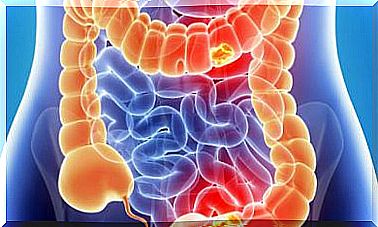Enzymes In Food: What You Should Know About Them
Kiwis contain enzymes that improve digestion and prevent constipation and flatulence. Which enzymes can we find in food? What do they do? Find the answers to these questions in today’s article.

Enzymes are proteins that control or speed up certain biochemical reactions in the body. They are not only very important for the digestion of the food eaten, but also for the entire metabolism. During digestion, they aid in the decomposition and absorption of nutrients. There are therefore, for example, various enzyme-rich foods that are recommended to relieve constipation and the symptoms that go with it.
As mentioned briefly, enzymes play an important role in various chemical and physiological reactions. In addition, they can also have anti-inflammatory or antioxidant properties. We’ll then explain the most important things you should know about enzymes.
Proteolytic enzymes in food
Various enzymes, such as the actinidain found in kiwi fruit, have the ability to catalyze the breakdown of proteins and improve the absorption of amino acids. They therefore have very positive effects on digestion, as can be read, for example, in an article published in the specialist journal Food Function .
In the scientific literature we also find studies of the relationship between this enzyme and the relief of constipation. As noted in the Asia Pacific Journal of Clinical Nutrition , human trials have shown that kiwifruit can reduce symptoms such as irritable bowel syndrome, gas, and abdominal pain.
Another example of proteolytic enzymes is found in pineapple. The bromelain it contains has the ability to break down proteins in order to absorb amino acids. It is a fruit with diuretic and digestive properties. It is therefore recommended after large meals in order to prevent the associated symptoms such as flatulence and gas formation.

Enzymes with anti-inflammatory effects
We also find enzymes in foods like papaya that have anti-inflammatory effects. These can also be used for oral hygiene products, for example, as they have an antimicrobial effect.
A study published in the Brazilian Dental Journal found that papain (the enzyme found in papaya) can be very helpful in treating different types of tooth decay. Because it has the ability to regulate the immunological response and inflammation.
In addition , regular consumption of papayas could also be very helpful in preventing obesity and other metabolic disorders, according to an article published in the journal Nutrients .
This is mainly due to the antioxidant, antihypertensive, and hypoglycemic properties of this enzyme. However, it has not been adequately researched whether this is due to the enzyme papain or other active ingredients contained in the papaya fruit.
Enzymes in food supplements
There is currently no evidence that enzymes in supplements have any health benefits. Nevertheless, various protein preparations also contain enzymes in their composition.
This is to reduce digestive or intestinal discomfort that could result from ingesting large amounts of protein. The enzymes also help with flatulence, which is also very important.
The industry is researching active ingredients with different chemical structures that could be beneficial in nutritional supplements for athletes to improve the absorption of nutrients.
The results achieved so far with regard to better digestibility of whey proteins have been so positive that it is worthwhile to supplement high-quality protein preparations with these enzymes.

More studies are needed
Enzymes can perform many other functions that have yet to be explored. Scientists are currently studying the effects they could have on allergic processes. Research is also being carried out into the relationship between enzymes and the development of various diseases.
Various in vitro models are already available, but the results still have to be tested on humans in order to be able to confirm them. In the years to come, this research area will surprise us with interesting results that will expand our knowledge of the effect of enzymes on human physiology.
Even now, foods with enzymes are recommended to make digestive problems easier. Kiwis and pineapples are especially advisable in this case.
There are also other foods with anti-inflammatory and antioxidant properties, but there is not enough research into whether these are actually due to the enzymes they contain or to other active ingredients. Because the flavonoids contained in them could give these foods the beneficial properties.
Finally, we would like to briefly mention that the enzymes mentioned can be found in plant-based foods. For this and other reasons, these industrially manufactured products are always preferable. So don’t forget to include enough fresh fruits and vegetables in your diet!








